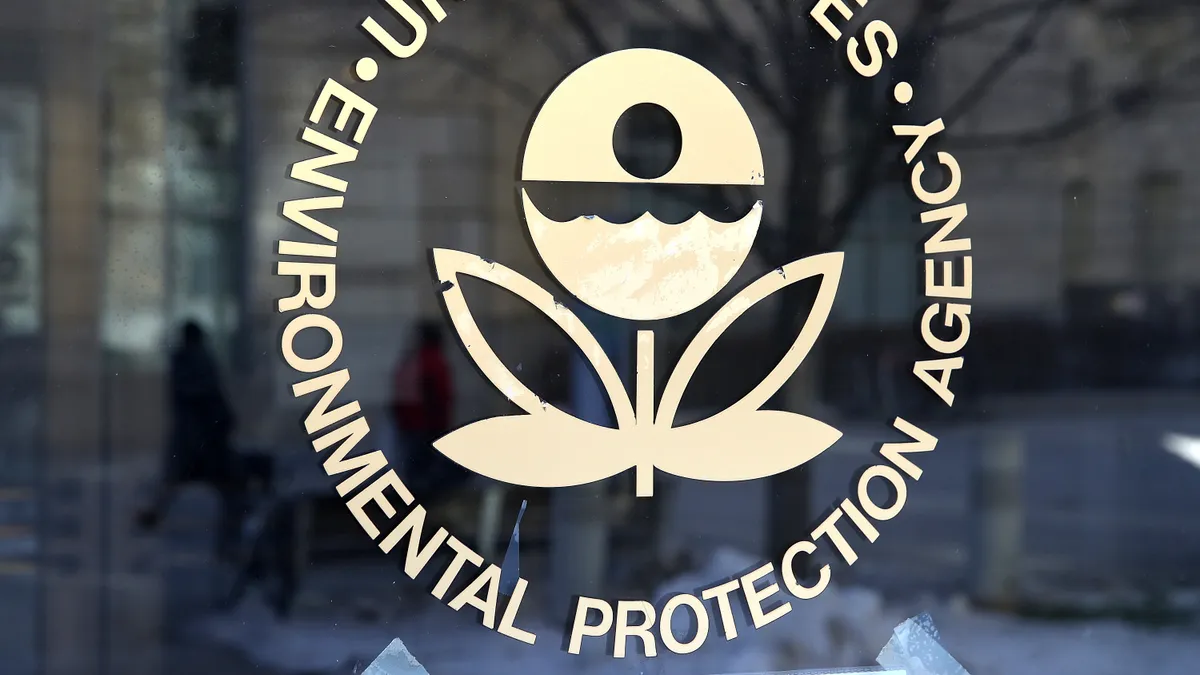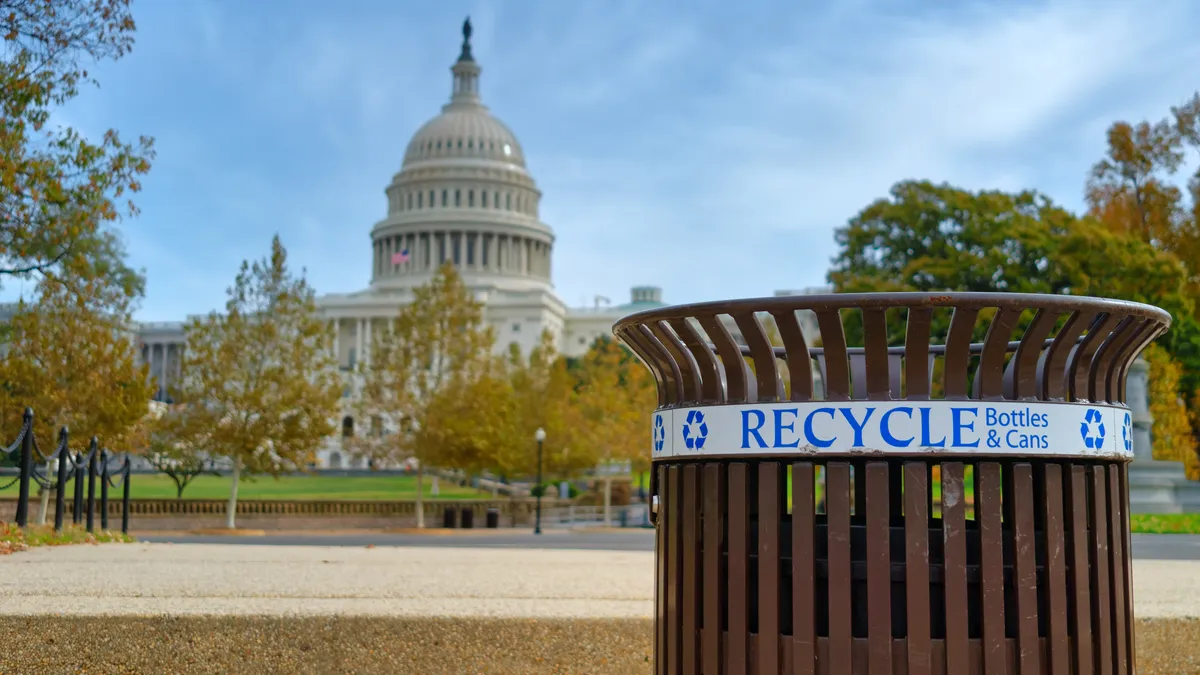Dive Brief:
- The U.S. EPA this week proposed to designate vinyl chloride, a building block for packaging material PVC, as a high-priority substance for risk evaluation under the Toxic Substances Control Act. Vinyl chloride is one of five chemicals that EPA is proposing to designate as such, a list that also includes chemicals like acetaldehyde and acrylonitrile, though the others are less relevant to packaging.
- This latest step was expected. If the agency finalizes the designations, it would begin the risk evaluation process, and EPA could eventually develop and implement risk management measures.
- This week’s development follows the agency’s December announcement that it was beginning the prioritization process for this set of chemicals. EPA said on July 24 it would accept public comment on the proposed designations for 90 days.
Dive Insight:
Industry groups have said PVC products are safe, while environmental groups have called for an outright ban of the chemical broadly. In addition to flexible plastic packaging, PVC also shows up in building products and toys.
This EPA process previously drew comments from Dow, the American Chemistry Council, the Household and Commerical Products Association and multiple environmental protection advocacy groups.
Beyond Plastics, Earthjustice and Toxic-Free Future jointly shared a report this week with recommendations to EPA for the evaluation process. Among their concerns is the potential for vinyl chloride to leach from PVC pipes, which they say some communities are considering installing as an alternative to lead service lines.
“Vinyl chloride threatens our health and contaminates the environment from manufacture through disposal, with workers and people living near chemical facilities and along vinyl chloride transport routes suffering the highest exposures and in the greatest danger,” said Liz Hitchcock, director of Safer Chemicals Healthy Families, the federal policy program of Toxic-Free Future, in a statement.
The Biden-Harris administration says this evaluation process is consistent with its goals to pursue environmental justice, tackle plastic pollution and end cancer. EPA asserts that vinyl chloride is a known human carcinogen that can cause liver, brain and lung cancer in exposed workers.
This administration is considering each chemical as a whole, rather than evaluating the different uses of a certain chemical, according to Keller & Heckman’s David Fischer, counsel, and Herb Estreicher, partner. This approach to regulation is facing some legal challenges, they said.
Almost all chemicals that are deemed high priority will be determined to present unreasonable risk, which EPA will then need to address through risk-management rulemaking, explained Fischer, formerly a senior director at ACC and a deputy assistant administrator for EPA’s Office of Chemical Safety and Pollution Prevention. The risk management process itself could take several years, he said. While EPA would make one unreasonable risk determination for an entire chemical, the risk management rule would regulate on a condition of use basis, he explained.
Manufacturers still have opportunities to influence outcomes. Citing an earlier example, Estreicher said that rulemaking on risk management for methylene chloride initially proposed widespread bans, but the final rule was more measured following industry engagement. The advice to industry is to interact “frequently and provide good, hard information to allow EPA to make sound decisions,” he said.
Beyond Plastics would like to see the material eliminated. “It is long past time for the EPA to ban this chemical,” said President Judith Enck, a former EPA regional administrator, in a statement.
Beyond Plastics estimates risk evaluation would begin at the end of this year and adoption of risk-management regulations may not come until the end of 2029.
The Vinyl Institute said it will continue to act as a conduit between the vinyl value chain and the EPA in the multiyear process.
“The Vinyl Institute and our members will continue to collaborate with EPA as we have to date to ensure they have all the necessary information during this process,” said CEO Ned Monroe in a statement. Monroe added that members “adhere to some of the most stringent safety and environmental regulations in the chemical industry, and this process will demonstrate the production and use of vinyl chloride are safe.”















